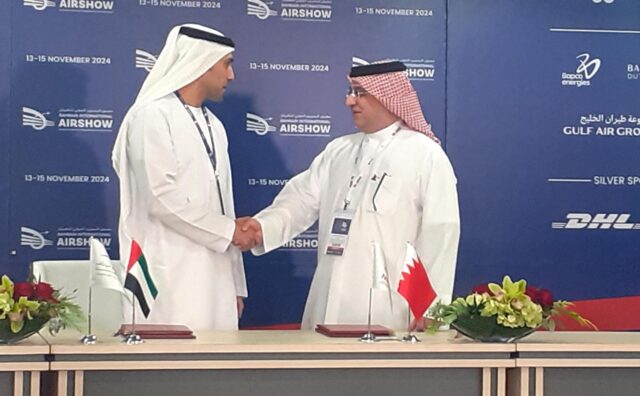BAE Systems receives first ECRS Mk2 radar for UK Typhoon fleet
Image: BAE Systems
BAE Systems has received a prototype ECRS Mk2 (European Common Radar System Mk2) from Leonardo, marking the latest milestone in the ongoing development programme for the…

Image: BAE Systems
BAE Systems has received a prototype ECRS Mk2 (European Common Radar System Mk2) from Leonardo, marking the latest milestone in the ongoing development programme for the UK Typhoon fleet.
The radar will now undergo integration work and ground-based testing in preparation for its first flight tests on-board the Eurofighter Typhoon next year. This will take place at BAE Systems’ flight testing facility in Lancashire, United Kingdom.
Jamming attack
The ECRS Mk2 features an innovative multi-functional array (MFA) that can perform both traditional radar functions such as search and targeting, as well as electronic warfare tasks. This means that Eurofighter Typhoon will be able to locate and deny use of an adversary’s radar with a powerful electronic jamming attack, whilst staying beyond the reach of threats.
Richard Hamilton, Typhoon Programme Director, Europe – BAE Systems Air, said: “The ECRS Mk2 radar is one of a number of key capabilities which we are integrating to secure Typhoon’s as the backbone of air defence across the globe for decades to come.
“Together with enhanced mission systems, advanced sensors, weapons and displays, we are delivering a sovereign capability which will keep RAF pilots safe and ensure the UK has the skills to continue to mature key technologies which support its future combat air ambitions.”
The overall Typhoon programme supports more than 20,000 highly-skilled jobs across the UK. The work developing the ECRS Mk2 is securing 600 roles including more than 300 at Leonardo’s site in Edinburgh, 100 in Luton and 120 at BAE Systems in Lancashire. With the new radar and a wider package of enhancements for Typhoon being funded by the UK MOD, the combined programme is expected to sustain up to 1,300 jobs in the UK.
Subscribe to the FINN weekly newsletter
















